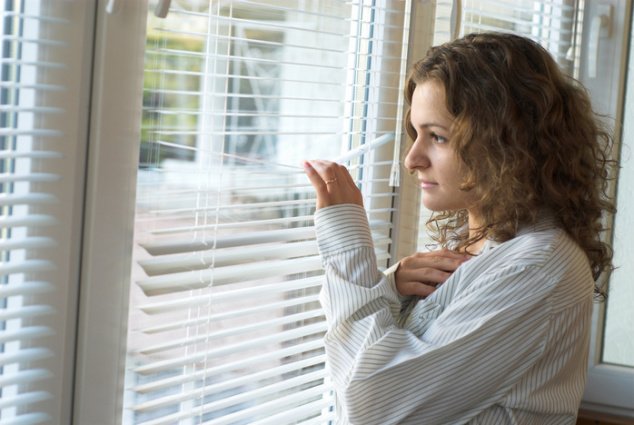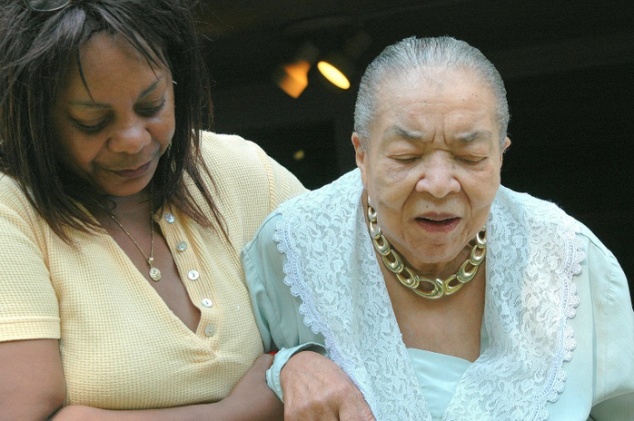How fast is worry killing you?
Worrying causes stress. You could say worry is a form of self-induced stress. When you feel negative emotion of any type, it creates stress in your body. Worry can be a slight worry, such as a worry about whether you left the coffee pot on as you drive to work or it can be a continuous concern for the welfare of those you love.
When you worry, as soon as you feel worried, a bio-chemical change occurs in your body. These changes affect every aspect of your body, including your immune system, cognitive function, central nervous system, and digestive function to name a few. This creates a pathway for illness and disease.
The digestive function disruption, when it is continually disrupted with chronic stress from any source, including habitual worrying, becomes dysregulate greatly increasing the risks of obesity and diabetes and lowering its ability to deliver nutrition from the foods you eat to your body.
The effect on your immune system is worse. Your incidence of cold and flu will not only be more frequent, the episodes will be more severe. But that is just the tip of the iceberg. The risk from cancer and even Alzheimer’s increases as immune function declines. An attitude of positive expectation reduces the risk of developing heart disease by 50% (Boehm, 2012). The risk of other diseases also increases.
Why do you worry? What is worry? In many cases worry is a lack of trust. In many cases it is not a conscious lack of trust, but a habitual one. For example, if you worry about the welfare of your child when he or she is not with you, perhaps your young adult child, where you have no control over the outcome you may believe your worry is love, but it is really indicating that you do not trust your child to take care of him or herself. That worry may make the child doubt him or herself, lowering self-esteem, which increases the risk of becoming a victim.
Additionally, this child you love may someday die earlier for two reasons. Today the research linking the detrimental effects of chronic stress, including chronic worry are not widely known. They are known in the halls of academia where the research has been found, but the public has not yet embraced this new knowledge that changes the way we look at healthy behavior. But if you’re worrying about a twenty-something year-old, he or she will someday understand that your early demise was partially because of worry you did about his or her welfare. Now, an emotionally healthy person will realize that she was not responsible for how you thought about her, and whether you trusted her to do what was best for herself. But if that level of emotional intelligence is not achieved, he may feel guilty about how much you worried on his behalf. Guilt is another negative emotion, one that if it is chronic, will cause the same bio-chemical chain reaction described above for worrying. Thus, your habit of worrying has the potential to rob not only you of years of healthy life, but also rob the person you are worrying about.
Now, let’s consider a major cause of worry—projecting things we see reported on the news as likely scenario’s for us or are loved ones. Is this a valid concern? Yes, to the extent that bad things happen in the world. No as far as the likelihood that they will happen to someone you love. For example, most parents worry about their child being abducted by a stranger. The risk of this is 1 out of 1.5 million children. A woman I am citing in my upcoming book, Stress Kills:Happiness Heals, figured out that a child would have to be left outside unattended for 750,000 years in order to make the risk 1 out of 1. Why do we fear this so much?
Most of us believe the media is here to inform us of life during our times. But the truth is that the media did research to see what makes viewers watch more. How does the media make money? Ratings, based on the number of viewers. What is their job? It is to get good ratings. Nowhere in that job description is there anything about informing us. If that were their goal, they might report how many millions of people made it home tonight and every night instead of scouring the planet for the worst of human experience and piping it into our homes.
Look behind the veil and see that when the media pushes that into your living room, they are doing their job, because the research showed that frightened viewers watch more news.
Remember, the first thought you have and the emotional response you have to the thought does not mean the thought is true or even likely. Negative emotion only means that the perspective of the thought is different from what is desired from the situation. The emotion does not give the potential greater validity, unless and until you let it take root.
Now, I’m not saying tragedies don’t happen. But the likelihood of one happening to you or your loved ones is extremely small. The likelihood of you having negative health outcomes from habitual worry is large.
Worry is not love. As stated earlier, worry indicates a lack of trust.
There are other factors at work here as well. When you continually worry about someone, it can diminish their confidence. Research into who criminals choose as victims shows that a lack of confidence greatly increases the risk of becoming a victim.
Is your loved one of such low intelligence that he cannot make good decisions about where to go and who to go with?
Or is your loved one just as concerned about her own wellbeing as you are and consciously making good decisions that make her safer?
Remember, the survival instinct is strong in each of us almost all the time. There are some exceptions when life feels too difficult, but that is often more a lack of resilience than a truly horrific life. My recent book, Prevent Suicide: The Smart Way increases resilience, a strong protective factor against suicide. But outside the arena of suicide (which is a temporary state of mind that will pass if given the opportunity to do so), we all have a strong natural self-preservation instinct. Combine intelligence, some common sense and this survival instinct and the risk we won’t always make it home safely is very small.
There is another pathway that being distrusted can lead to increased risk. It does not feel good when you aren’t trusted—even when the distrust manifests as worry. This can lower self-esteem and also mood, both of which are risk factors that make it more likely someone will drink and/or experiment with drugs. These will increase the risk of something to worry about happening, but the root is not the drinking or drugs, it is the lack of trust that made the person seek solace in those things.
It’s Christmas Eve. Many families will be gathered today. Many families whose conversations do not go very deep. Oh, they love one another, but they don’t know one another. Instead of worry, show your loved ones love and trust. Let them know that you’ve been misled by the media and maybe also by your own experiences in the world you lived in at their age, or the naiveté you had at their age, but you’re now going to do your best to trust more and worry less.
If you’re worried that someone is at risk, instead of worrying, take action. Tell them you are worried and that it is your life experience and your personal history and habits of thought that make you worry but they could help you overcome that by sharing with them what they do to protect themselves.
If a relative were to ask me that I would be happy to share the multitude of ways I manage my life and actions to be safe, from locking my doors to planning where I go and when I go, to wearing sensible shoes if I am out alone, to being aware of my surroundings, etc. You may be surprised at younger ladies, many of them seldom go anywhere alone, partly for social reasons but I think also because they feel more comfortable having a friend along.
Have real conversations—not surface ones. It will build stronger relationships which research shows improves your health.
 I am honored to serve with Dr. Ken Carter on the Board of Directors of AWES International (Academy for Wellness, Education, and Services).
I am honored to serve with Dr. Ken Carter on the Board of Directors of AWES International (Academy for Wellness, Education, and Services).

